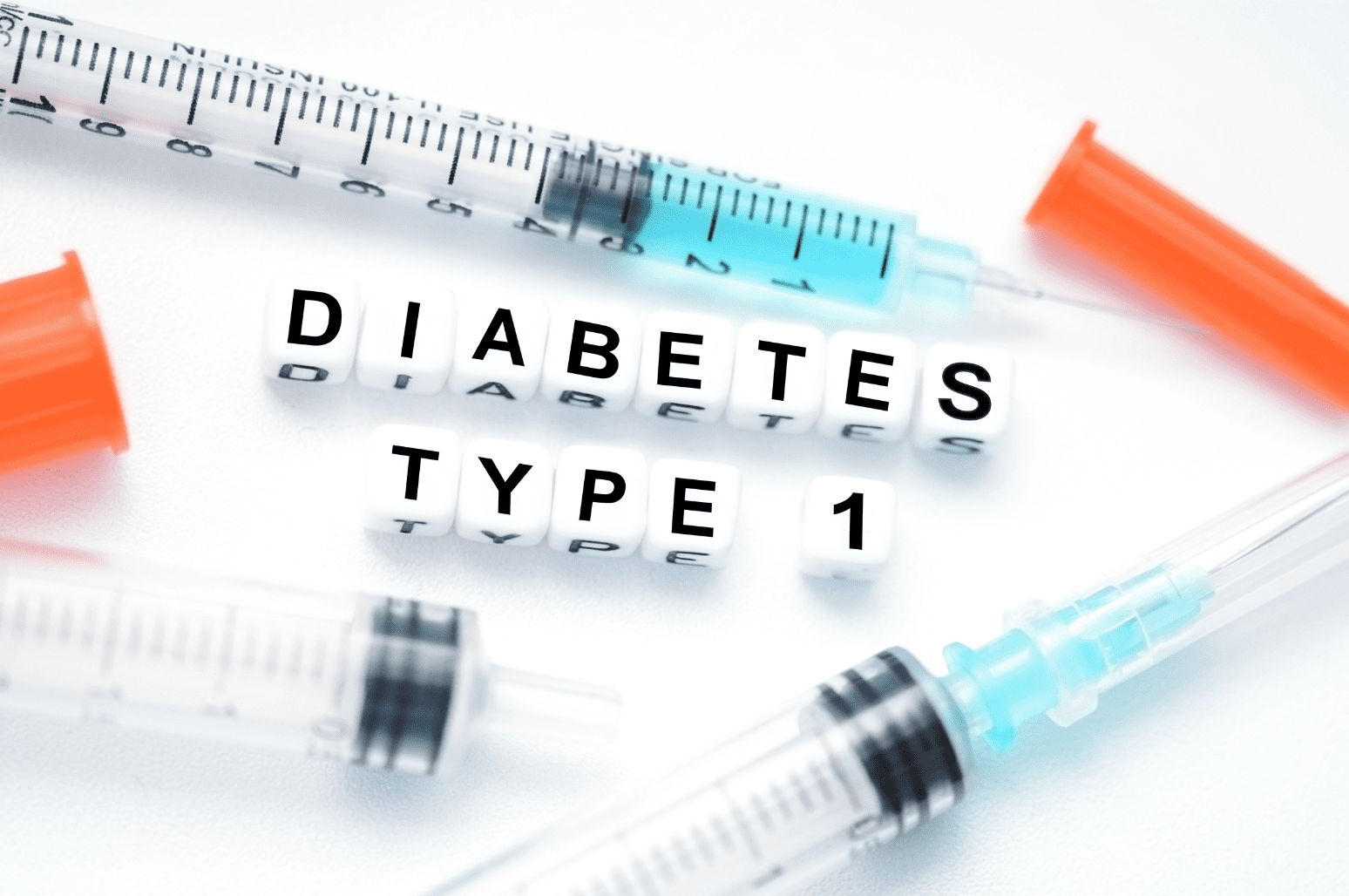
All forms of diabetes are more complex than diet alone, but what you eat plays a major role in managing blood sugar, hormones, and metabolism. It’s evidence-based and no secret that a ketogenic diet stabilizes blood sugar, balances hormones, and improves metabolism. Can keto improve prediabetes? And what are the risk factors for prediabetes? Let’s delve into the details.
What Is Prediabetes?
If left untreated, prediabetes can turn into type 2 diabetes over time. Consider prediabetes a warning zone where your blood sugar levels are higher than normal but not high enough to be considered type 2 diabetes. If you have prediabetes, managing your blood sugar levels is imperative to prevent type 2 diabetes from developing. Long-term damage to the heart, kidneys, and blood vessels could already be beginning with prediabetes.
There usually aren’t any symptoms of prediabetes, so you might not realize you have it. Some people experience darkened skin in areas of the body, like the neck and armpits.
Signs your prediabetes is worsening into type 2 diabetes are:
- Increased thirst and hunger
- Blurred vision
- Fatigue
- Frequent urination
- Slow-healing sores
- Frequent infections
- Numbness and tingling in the hands and feet
- Unintended weight loss
Diabetes is complex and involves problems with how your body processes a type of sugar (glucose) found in various foods. Your pancreas (a gland located behind your stomach) produces the insulin hormone to help store the sugar in your cells and convert it into usable energy. When your blood sugar levels drop, your pancreas slows down the secretion of insulin accordingly.
People with diabetes don’t produce sufficient insulin or can’t properly convert glucose into energy. The insulin receptors on their cells become resistant to insulin over time (insulin resistance). As a result, sugar builds up in their bloodstream.
Diabetes increases the risk of health complications like kidney disease, slow-healing wounds or injuries, nerve damage, and retinopathy. [1]
What Causes Prediabetes?

It isn’t exactly clear what causes prediabetes. Genetics and family history could play a role, but diet is a pivotal factor that can’t be overlooked.
Risk factors that heighten the odds of developing type 2 diabetes also heighten the risk of prediabetes, such as:
- Being overweight
- Having a larger waist size (abdominal fat tissue)
- Consuming a diet of excess sugar and sugar-sweetened beverages)
- Having a family history of any type of diabetes
- Polycystic ovarian syndrome (PCOS)
- Obstructive sleep apnea
- Smoking
- High blood pressure
- Having high levels of triglycerides and lower levels of the ‘good’ HDL cholesterol
- Metabolic syndrome
If you have any questions or concerns about prediabetes or your blood sugar, it’s best to visit your doctor or healthcare practitioner for an evaluation. You can check your blood glucose levels at home.
What Are the Treatments for Prediabetes?
To prevent prediabetes from turning into type 2 diabetes, most doctors recommend the folllowing:
- A healthy diet rich in olive oil, fruits, vegetables, nuts, whole grains, and fiber
- Physical activity to assist your body in using insulin more effectively
- Losing excess body weight
- Stopping smoking
- Stress relief and meditation
- Taking medications as needed (such as medication to control cholesterol or blood pressure)
Alternative therapies are being explored, including supplementation with:
Many doctors and health experts recommend a low-carb diet for those at risk for diabetes. [2]
Keto and Prediabetes: Can a Ketogenic Diet Improve Prediabetes?
The ketogenic diet has shown promise in all types of diabetes. Research continues to grow, highlighting how a high-fat, low-carb way of eating can normalize blood sugar levels and lower the risk of diabetes. [3] Keto is also beneficial for many the risk factors for diabetes, like cholesterol, PCOS, obesity, and poor sleep.
Anecdotal evidence of the efficacy of keto is everywhere, with many people happily sharing success stories of reversing prediabetes and diabetes by switching to a keto lifestyle. Check out Oscar’s diabetes success story here at Ketogenic.com.
Research shows going keto can improve conditions common in people with diabetes such as diabetic retinopathy and macular degeneration. Diabetic retinopathy involves damage to the intricate blood vessels of the tissue at the back of your eye (retina). This damage occurs gradually due to chronic high blood pressure and high blood sugar levels. [4] [5]
Most people on keto also have better cholesterol, including higher HDL levels. Low HDL cholesterol is a risk factor for developing type 2 diabetes. [6]
The Role of Sugar in Prediabetes
When you eat sugar and foods that turn to sugar, your body has to produce and use the insulin hormone. Insulin prevents dangerously high blood sugar levels and helps you store and use that sugar properly.
The standard Western diet is sugar-loaded, and the more sugar you eat, the more insulin you need to manage it.

Imagine it like someone yelling in your ears over and over again until, finally, you plug your fingers in your ears, and you can’t hear the yelling so much anymore. On a high-sugar diet, cells eventually become overwhelmed with insulin “yelling,” and they become resistant and unable to respond properly.
As you say goodbye to that excess sugar and welcome in the healthy fats, you’re also reducing the need for insulin. A degree of carbohydrate restriction is often recommended for people with diabetes or prediabetes because carbohydrates turn to sugar in the body, and too many carbs can lead to high blood sugar spikes and subsequent crashes.
Research reveals keto improves blood sugar, blood pressure, and glycemic control, and results in medication reduction and discontinued insulin requirements. [7] A lower glycemic diet is correlated with lower blood pressure, which could be partly due to the reduction of insulin.
A recent study concluded that carbohydrate reduction normalized blood sugar in over 50% of people with prediabetes. The study involved fewer than 30 grams of total carbs daily, dietary fat to satiety, and 1.5 grams per kilo of protein. On average, participants lost weight and experienced drastic improvements in their triglycerides, HDL cholesterol, liver function, and fasting insulin levels. [8]
Another study compared a low-carb ketogenic diet with a low-calorie diet for obese type 2 diabetics, and researchers discovered the low-carb keto diet was far superior to the low-calorie diet in improving glycemia. [9]
Why Keto Is a Good Choice for Prediabetics
A ketogenic diet isn’t just a diet or a fad; it’s a metabolic shift from being a sugar burner to a fat burner. Keto eases the sugar and insulin burden on your body, giving you a chance to normalize your metabolism.
A ketogenic diet has been proven anecdotally and in scientific literature to help manage prediabetes and diabetes. Keto can improve many of the risk factors for developing diabetes, including:
- Obesity
- Excess body fat (abdominal fat)
- High blood pressure
- Unstable blood sugar
- Metabolic syndrome
- Low HDL cholesterol
- PCOS
- Poor sleep
Most docs suggest eating a well-formulated ketogenic diet with healthy fats, good-quality protein, and a range of low-carb foods like veggies. Stay hydrated, get sufficient exercise, and snack when you need to.
Have you used a ketogenic diet to manage your prediabetes? Share your story with Ketogenic.com.
References
Mayo Clinic. Prediabetes. Prediabetes - Symptoms and causes - Mayo Clinic
National Library of Medicine. Diabetes. Diabetes | Type 1 Diabetes | Type 2 Diabetes | MedlinePlus
Hallberg, S. J., McKenzie, A. L., Williams, P. T., Bhanpuri, N. H., Peters, A. L…Volek, J. S. (2018). Effectiveness and safety of a novel care model for the management of type 2 diabetes at 1 year: An open-label, non-randomized, controlled study. Diabetes Ther, 9(2), 583-612. DOI: 10.1007/s13300-018-0373-9
Lee, R., Wong, T. Y., & Sabanayagam, C. (2015). Epidemiology of diabetic retinopathy, diabetic macular edema, and related vision loss. Eye Vis (Lond), DOI: 10.1186/s40662-015-0026-2
Zhao, C., Wang, W., Xu, D., Li, H., Li, M., & Wang, F. (2014). Insulin and risk of diabetic retinopathy in patients with type 2 diabetes mellitus: Data from a meta-analysis of seven cohort studies. Diagn Pathol, DOI: 10.1186/1746-1596-9-130
Bhanpuri, N. H., Hallberg, S. J., Williams, P. T., McKenzie, A. L., Ballard, K. D., Campbell, W. W., McCarter, J. P., Phinney, S. D., & Volek, J. S. (2018). Cardiovascular disease risk factor responses to a type 2 diabetes care model including nutritional ketosis induced by sustained carbohydrate restriction at 1 year: An open label, non-randomized controlled study. Cardiovasc Diabetol, DOI: 10.1186/s12933-018-0698-8
Westman, E. C., Yancy Jr. W. C., Mavropoulos, J. C., Marquart, M., & McDuffie, J. R. (2008). The effect of a low-carbohyrate, ketogenic diet versus a low-glycemic index diet on glycemic control in type 2 diabetes mellitus. Nutrition & Metabolism, The effect of a low-carbohydrate, ketogenic diet versus a low-glycemic index diet on glycemic control in type 2 diabetes mellitus | Nutrition & Metabolism | Full Text (biomedcentral.com)
McKenzie, A. L., Athinarayan, S. J., McCue, J. J., Adams, R. N., Keyes, M., McCarter, J. P., & Volek, J. S. (2021). Type 2 diabetes prevention focused on normalization of glycemia: A two-year pilot study. Nutrients, https://doi.org/10.3390/nu13030749
Hussain, T. A., Mathew, T. H., Path, F. R. C., Dashti, A. A., Asfar, S., Al-Zaid, N., & Dashti, H. M. (2012). Effect of low-calorie versus low-carbohydrate ketogenic diet in type 2 diabetes. Nutrition, 28(10), https://doi.org/10.1016/j.nut.2012.01.016









